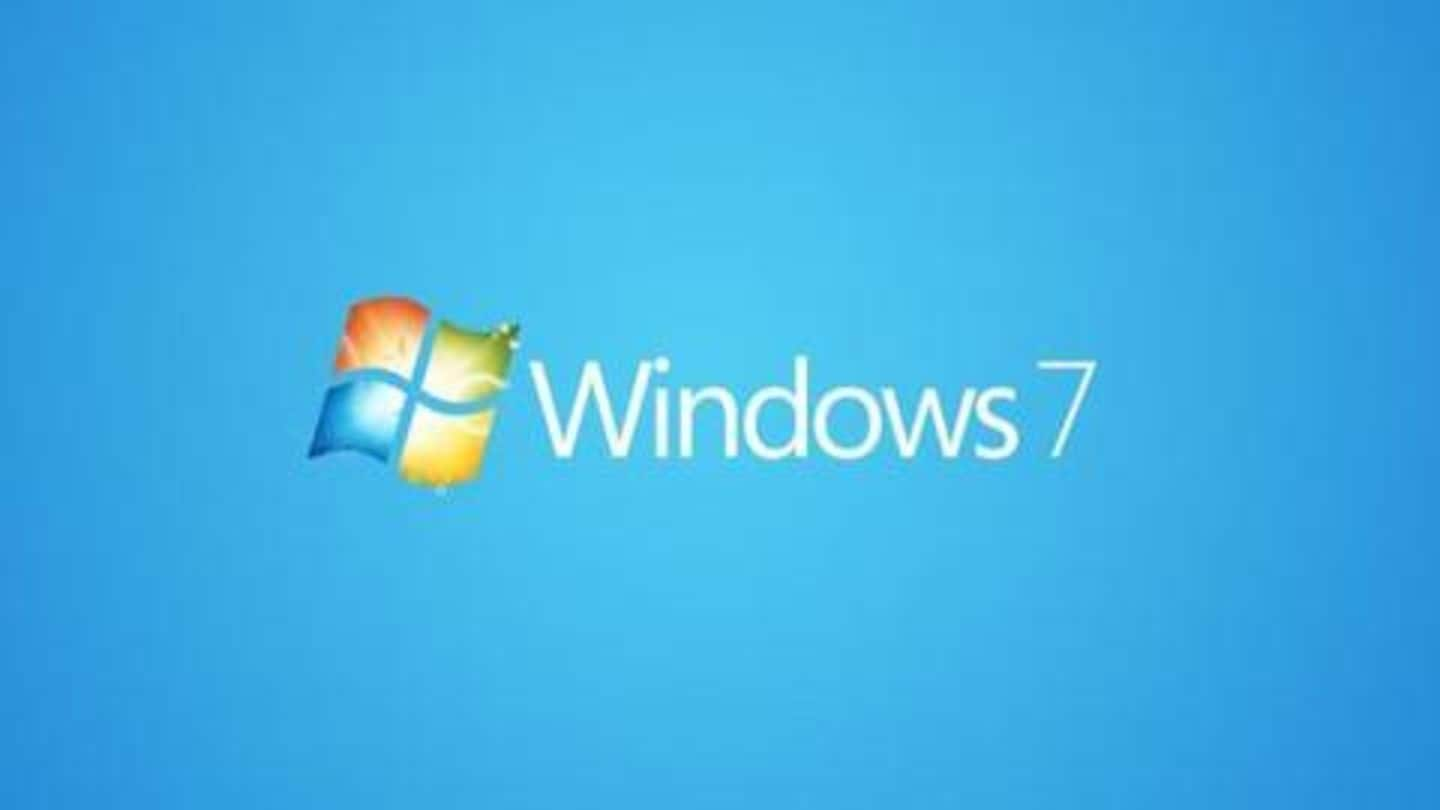
Microsoft will soon end support for Windows 7: Details here
What's the story
In a major, albeit expected, move, Microsoft has decided to pull the plug on Windows 7 - its much-loved desktop operating system. Over the years, Windows 7 has dominated as one of the biggest hits from Microsoft, but now, its successor has taken over, and the company will end support for the old OS, starting next year. Here's more on the move.
Details
What happens when Microsoft ends support
Brad Anderson, Corporate VP for Microsoft 365, recently confirmed that Windows 7 will no longer be supported after January 14, 2020. As such, Microsoft will not provide any more security or feature updates to the operating system. The OS will continue to work even without support, but it will be more vulnerable to security risks and viruses - with no security/bug fixes.
Quote
Here's what Brad Anderson said on Microsoft's move
"Changes and upgrades in technology are inevitable," Anderson said while guiding customers for Windows 10 upgrade. "And there's never been a better time to start putting in motion the things you need to do to shift your organization to a modern desktop with Microsoft 365."
Business customers
Notably, business customers will get paid support
That said, it is important to note that Microsoft will give an added option of extended security updates (ESUs) to its business customers. Those with Windows 7 Pro or Enterprise could pay for extended support on a per device basis, ZDNet reported. The service will be provided for three years (with prices increasing every year), but it won't be available for consumer versions.
Windows 7 coverage
Interestingly, Windows 7 runs on a massive chunk of devices
Microsoft's move is aimed at increasing the uptake of its latest operating system - Windows 10. However, it is interesting to note that Windows 7, which released a decade ago, is still running on a large number of computers. As per Net Applications, Windows 7 was present on nearly 43% of all Windows machines last month, while Windows 10 was on 46%.
Options
So, you should probably consider an upgrade
With support clock now ticking, all these Windows 7 users should consider upgrading to Windows 10. Otherwise, users will have to face the risk of security bugs and vulnerabilities, while enterprise customers will have to pay. So, check your PC's configuration (it should meet minimum system requirements), and get Windows 10 before support runs out.